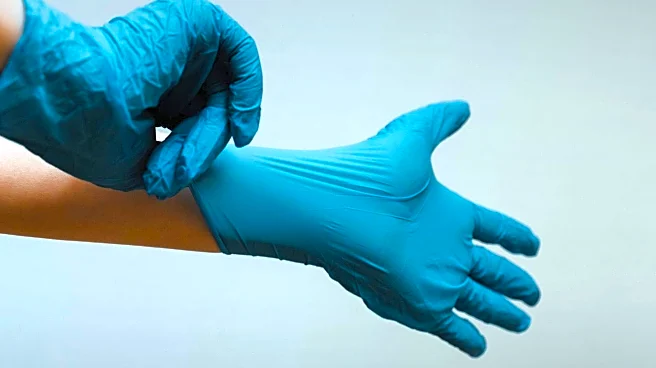What's Happening?
The Democratic Republic of Congo is facing a severe Ebola outbreak, with 16 confirmed deaths and 28 suspected cases, including infections among healthcare workers. The World Health Organization (WHO) is actively working to trace contacts, increase lab testing, and ensure early reporting. However, the WHO's efforts are hampered by recent aid cuts from the Trump administration, which have raised concerns about the ability to respond effectively to the outbreak. The WHO has delivered 13 tons of emergency medical supplies to Congo, but the situation remains critical as the country battles multiple health crises, including an mpox outbreak.
Why It's Important?
The aid cuts by the Trump administration have significant implications for global health security. The reduction in funding affects the WHO's capacity to respond to outbreaks like Ebola, potentially allowing the virus to spread unchecked. This poses a threat not only to Congo but also to neighboring countries and potentially the U.S., as diseases do not respect borders. The situation underscores the importance of international cooperation and adequate funding for global health initiatives to prevent the spread of infectious diseases.
What's Next?
The WHO is working to deliver more medical supplies and vaccines to Congo, but the effectiveness of these efforts may be limited by the reduced funding. Other African nations are on high alert to prevent the spread of Ebola across borders. The global community may need to reassess funding strategies and prioritize international health security to prevent future outbreaks.
Beyond the Headlines
The ethical implications of aid cuts during a health crisis are profound, as they affect vulnerable populations in developing countries. The decision to reduce funding raises questions about the responsibility of wealthier nations to support global health initiatives and the potential long-term consequences of such actions.











